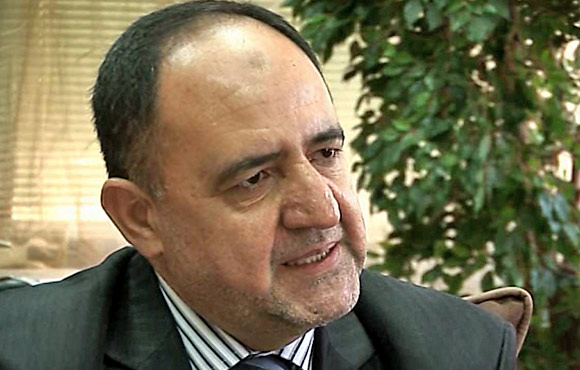Energy Tenders in Jordan
97% of our energy needs are currently being satisfied by imports and we would like to change this figure.
Interview with Dr. Ghaleb Maabreh, Managing Director of NEPCO

Electricity is one of the most pressing concerns as demand growth has doubled over the past two years with the expectation that the demand will continue to rise from 2260 megawatts in 2008 to 6000 megawatts by 2020. What is your overall assessment Jordan’s energy sector?
With the increased demand I feel that we have also increased our planning efforts and we have projects to cope with the increasing demand as well. In Jordan we have to IPPs (independent power producers)- one of them is in operation and the other will be in operation by the end of 2010. We at NEPCO are also working on floating a tender for a third IPP that would be in operating by 2013. Additionally we have domestic resources like oil shares and a recent feasibility study has been examining adding another power plant by 2016. The government is also looking at nuclear and renewable options.
Do you think renewables will have a place in the market?
I think all of us would like to see renewables have a place because they are environmentally friendly and we have to manage our natural resources well. 97% of our energy needs are currently being satisfied by imports and we would like to change this figure.
Is the reliance on external sources of energy a cause of concern to you?
I think there is definitely a security issue. Having local resources would provide us with more comfort. We would also like to be a part of the MENA shared system and play a role in their resource sharing.
You have revealed losses during the first six months of this year that are expected to reach 40 million JD (56 million dollars). What is your major challenge and do you think that by the end of the year you will be profitable?
The problem is with our power purchase agreements. During the first six months of this year we have witnessed a shortage in supply of Egyptian gas. Heavy fuel oil and diesel fuel oil are also very expensive and contribute to our losses. When gases are flowing again in the quantities that are allocated to Jordan we think we will recover all of our losses. We hope that gas will continue to flow within its normal range.

Do you think that there is a lot of space for international companies to enter the energy sector in Jordan?
I think there will be many opportunities in power generation because every two to three years we need a new power plant and currently they are all being built through IPPs that allow worldwide participation. Distribution networks have a natural monopoly but perhaps the supply business has room for international companies.
Do you think there is room for international players to enter the transmission market?
I believe that in accordance with government policies the transmission industry will remain state owned due to its small size.
How feasible are the nuclear prospects for Jordan?
This topic is being looked at by the Jordanian Nuclear Commission and they are responsible for this. In Jordan we have tremendous uranium ore resources and the potential for mining is there. If we want to have nuclear reactors I think we will need to have international companies to come in an aid in operations. Everything will depend on the installation costs of nuclear energy versus the savings on fuel and the tariffs. It is a new sector in Jordan so everything still remains to be seen in the future, perhaps it will become more clear by 2020.
Recent renewable energy laws have been approved by the Ministry that allow direct negotiations with companies and oblige NEPCO to purchase all electricity produced by renewable energy projects. Do you feel that this is a good decision?
Renewable energy is a new topic in Jordan and we have to encourage this. If you look at it from this prospective it is a good thing but if you look at it economically it shouldn’t be like this. Renewable energy is still in its early stages and, as such, needs subsidy (like our obligation to purchase) so in the beginning it will be a good thing.
Do you think this may negatively affect your numbers in the future?
Yes but I think this should be compared with tariff settings as well. In other parts of the world there are tariffs for renewables and perhaps in the future this will be the case in Jordan as well, per the regulating authority.
What are you expansion plans and what is your agenda for the next five years?
Our expansion plans call for the growth of electricity and to interconnect with the new power plants that will be installed. All of the new power plants will require for us to expand our system to take power from them. It is all an on going project and we are monitoring the expansion of the sector in order to accommodate for this growth and meet security constraints.
How do you address the question of corporate social responsibility?
We budget for the community and every year we participate in a different program.
What message would you like to send to the international community about Jordan?
Jordan is a very modern country and the investment law is very compatible with international investors. In Jordan we have a free market and we want everyone to participate in our new projects so we can increase competition whereby we are able to better our technology and prices for our customers. We are urging each and every investor to come to Jordan- the process is very transparent, fair, and not discriminatory. We are proud of our high standards here and would love to share them with the international community.